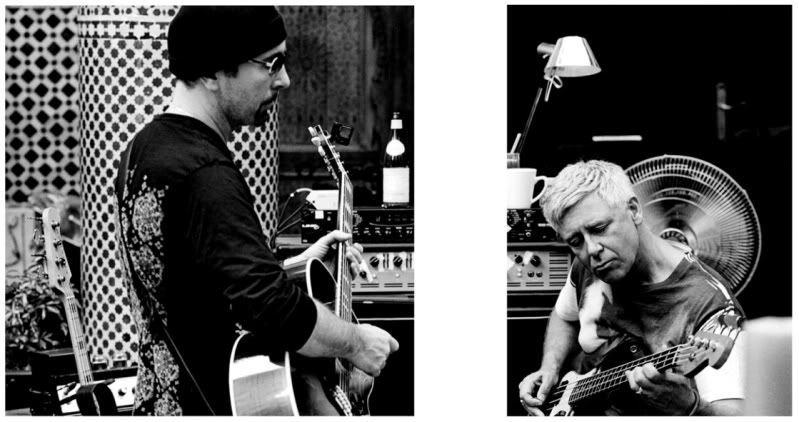I FELL OFF THE WAGON

The U2 wagon, that is... After declaring War upon these bombastic Boys for the better part of the millennium, they started working with Eno again, commissioned Anton Corbijn to churn out heaps of visual product faster than Vicky Pollard can churn out illegitimate chav babies, and Adam Clayton graduated to "silver fox" status. So how was I to resist?
THEY FELL OFF THE BANDWAGON
Supposedly the almost-excellent No Line on the Horizon is already underperforming, especially when compared to the huge immediate success of its predecessor, 2004's How to Dismantle an Atomic Bomb. Why haven't all these corporate analysts figured out yet that the major difference so far is that U2 garnered a blow-out iTunes campaign for the last one? Isn't it pretty obvious to those industry types by now that iTunes can spin straw into gold?
WE DIDN'T GET ON OUR BOOTS
Okay, maybe not the only difference. (Lukewarm) lead single "Get on Your Boots" has deservedly underperformed, especially when compared to previous leads... "Vertigo." "Beautiful Day." "Discothèque." Whether one cared for them or not (for me: eh, nay, yay, in that order), it's hard not to see those songs as major entries to the U2 canon. But the new song has that glaring sound of an old band trying far too desperately to sound hip. When it conjures up memories of Billy Joel's "We Didn't Start the Fire," you know there's an obvious problem.
I'll admit the slightly Middle Eastern tinge appealed to me at first (hello, Brian) but something kept nagging at me, and like thousands of others, I quickly realized what it was—its overt familiarity. Please see the following:
80's
70's
60's
ALL THAT THEY COULD LEAVE BEHIND
So with all this evidence brought forth, why on earth did I submit? It sounds as if I'm making fairly strong arguments for the continued irrelevance of U2 in the 21st century.
Well, shucks. I'm only human.
My love/hate relationship with U2 (and that thing called Bono) is well-documented in my life, not least of which is the time I traded in 8 of their CDs for $40 to buy two used sport coats. Mostly, as much as I loved their continued experimentation throughout the '90s, I grew tired of them... and THEN they had the nerve to release two overhyped, overly safe records in a row. I didn't even pick up HTDAAB until last year, out of some misplaced sense of curiosity after the awesome reissues of their early '80s records. (And you know what? That record is *much* better than the previous one.)
The media covering No Line on the Horizon prior to its release repeatedly confirmed that U2 had begun experimenting again, with the right architects on the job to make it happen... Brian Eno and, to a lesser degree, Daniel Lanois. So despite the weak single, I felt obligated to give it a shot. And it's true -- the band seems to have finally left behind the need to leave behind what made them interesting in the first place. Does that make sense?
The title track rocks hard; Bono's performance here is astonishing. Truly, it's the best thing they've released since Achtung Baby. The third track, "Moment of Surrender," sounds like a soul-baring gospel song from outer space. It's magical, and not by coincidence a little bit like a track from Eno's 2005 record Another Day on Earth. "Fez: Being Born" is the most hallucinatory, atmospheric piece they've recorded this decade—and possibly since The Unforgettable Fire. Most importantly, there isn't a hint of bland balladry on the album until the 9th track, which at least showcases Bono's rich lower register (I have to admit, he's in fine form throughout the whole damn album). Ultimately, though it doesn't break any new ground (beneath her feet) for U2, No Line on the Horizon does carry its creators' greatest strengths from one interesting moment to another, reminding those of us who'd given up how we'd gotten hooked in the first place.
